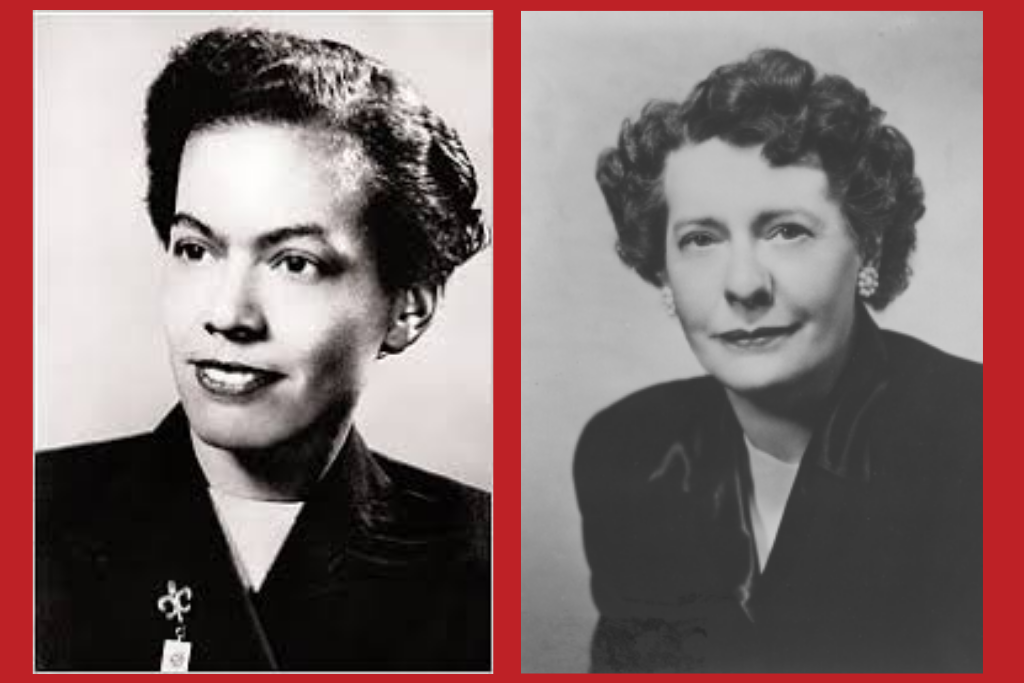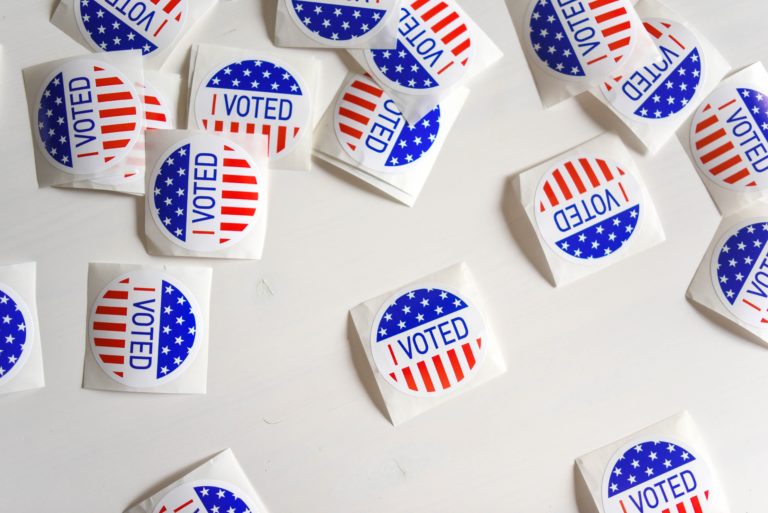On July 19, 1848, over 300 (mostly) women gathered for the Seneca Falls Convention,…
The Civil Rights Act of 1964: The Women Who Helped Make It Happen

Photograph: Pauli Murray, Florence Price Dwyer
On July 2, 1964, President Lyndon Johnson signed the Civil Rights Act, prohibiting discrimination on the basis of race, color, religion, and national origin and changing the lives of millions of Americans. When reading about the passage of the Civil Rights Act, you’ll see a lot about the men who had a hand in it: John F. Kennedy, Lyndon Johnson, and Martin Luther King, Jr. But we can’t forget about the trailblazing women who furthered the movement, advocated for civil rights, and voted for the Act.
Maude Ballou
In 1955, Maude Ballou was approached to become the personal secretary to Martin Luther King, Jr. She quickly became known as his right-hand woman. Working with King placed Ballou and her family in tremendous danger. She was listed as #21 on the Montgomery Improvement Association’s list of “persons and churches most vulnerable to violent attacks.”
Rev. Dr. Pauli Murray
In 1944, as the only woman enrolled at Howard Law School, Dr. Murray had a theory: argue that segregation was unconstitutional. Her writings became the cornerstone of the decision in Brown v. Board of Education. She later went on to co-found the National Organization of Women and be an inspiration for Ruth Bader Ginsburg’s work on Reed v. Reed.
Congresswoman Florence Price Dwyer
Congresswoman Dwyer was an early and avid supporter of the civil rights movement. Just a month into her first term, she introduced a bill that called for: (1) the creation of a bipartisan Commission on Civil Rights to secure voting rights for Black southerners and (2) an assistant attorney general at the Department of Justice focused solely on civil rights issues, among other measures. She also supported the elimination of poll taxes and the creation of a commission designed to provide fair job contract award processes for minority owned businesses and individuals.
Congresswoman Martha Wright Griffiths
Initially, the Civil Rights Act of 1964 left women out altogether. Virginia Congressman Howard Smith submitted an amendment to add “sex” to the categories protected by Title VII of the Act, hoping those in Congress who supported racial equality would draw the line at supporting gender equality and refuse to vote for the bill. Griffiths, the first woman to serve on the powerful Ways and Means Committee, fought for the amendment on the House floor. Her advocacy was met with laughter from her male colleagues. She responded: “I presume that if there had been any necessity to point out that women were a second–class sex, the laughter would have proved it.”






